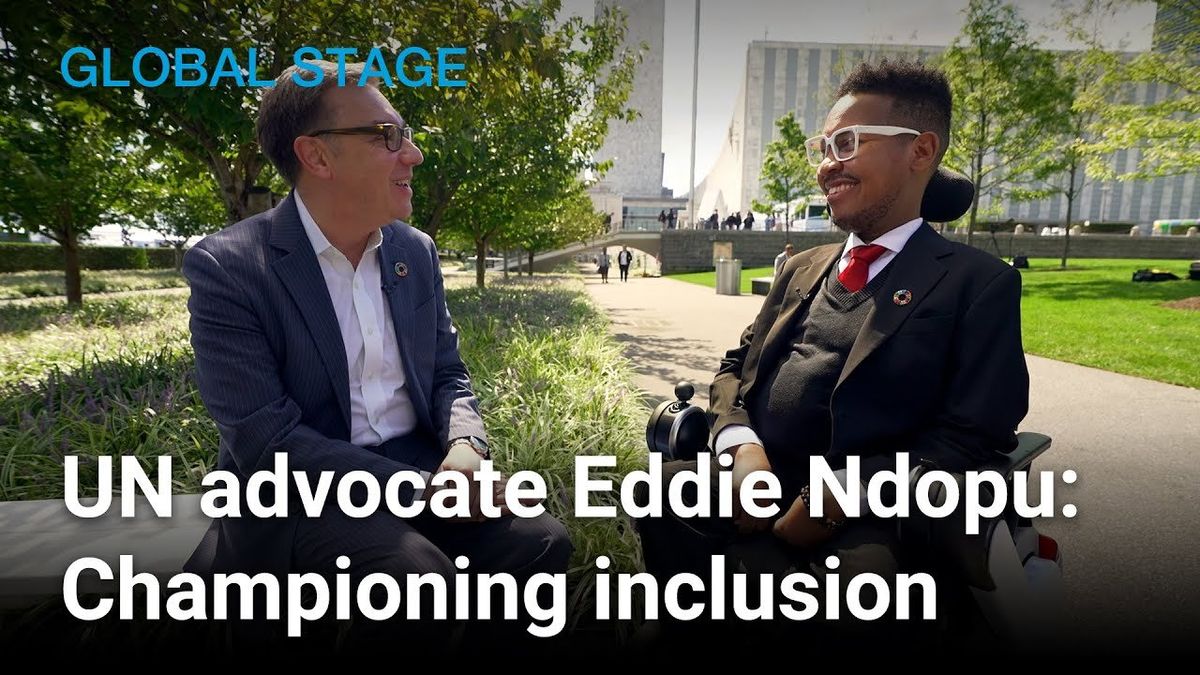As many as 98% of disabled children in the developing world “never see the inside of a classroom” or go to school at all, says Eddie Ndopu. He could have been one of that vast majority. Born in Namibia, he was diagnosed with Spinal Muscular Atrophy and expected to live for only five years. Now 33, Ndopu is a leading advocate for human rights and accessibility for all.
GZERO’s Tony Maciulis caught up with Ndopu at the UN General Assembly this week. The two discussed his role as one of the 17 Sustainable Development Goal (SDG) Advocates, a prominent position he shares alongside leaders including Canada’s Prime Minister Justin Trudeau, Prime Minister Mia Mottley of Barbados, and Microsoft’s Vice Chair and President Brad Smith. He hopes to bring a “fresh” perspective to the discussion of global development and help leaders understand the needs of the most vulnerable people, including those with disabilities.
Ndopu credits his success to his fiercely strong single mother, who never gave up on him despite all odds, and he continues to pay it forward and find new ways to raise awareness of the need for greater inclusion. He describes his recent memoir "Sipping Dom Perignon through a Straw" as “equal parts cheeky and incisive.” Just like him.
More from Global Stage: https://www.gzeromedia.com/global-stage/
- UN Chief on mounting global crises: "Hope never dies" ›
- COVID's impact on education and its long-term geopolitical consequences: Gerald Butts ›
- Demography and destiny: blessing or time bomb? ›
- Hard Numbers: US ponies up for the Amazon, African children miss vaccines, the Buzz clips the News, holy wine for sale ›
- Accessibility is critical for the world's disability community - GZERO Media ›
- Come inside the tech lab making accessibility fun - GZERO Media ›
- UN Global Advocate Eddie Ndopu: Changing how the world thinks about disability - GZERO Media ›

















